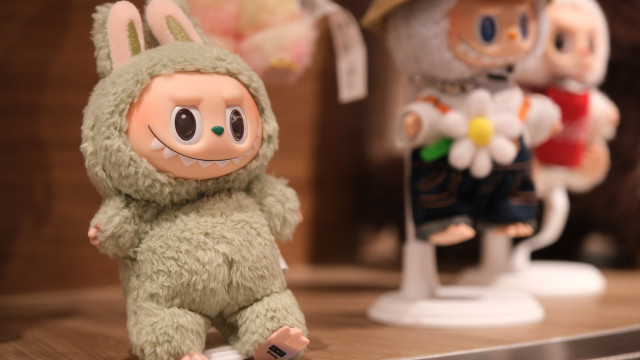The Lisbon Metropolitan Command of the Public Security Police (Cometlis) seized thousands of counterfeit plush toys last week, including Labubu dolls, valued at over 40,000 euros.
On August 17-21, operations leading to these seizures occurred in the parish of Santa Maria Maior. During these actions, several individuals were identified.
Cometlis conducted “several actions to combat counterfeiting in commercial establishments and street vending, detecting various items suspected of being counterfeit due to the material quality and pricing,” throughout this period.
Authorities reported the seizure of various items totaling 45,000 euros, with 3,298 plush toys suspected of counterfeiting making up the majority, valued at 42,874 euros.
Additionally, Cometlis seized 53 football club jerseys, valued at 1,325 euros; 17 pairs of sunglasses, worth 340 euros; and 32 electronic cigarettes, totaling 480 euros.
Authorities detailed that “all these items were related to various sports and luxury brands, thus violating the industrial property code approved by DL n.º 110/2018 of December 10, implementing EU Directives 2015/2436 and 2016/43.”
The Labubu craze is significantly boosting Pop Mart’s revenue. The CEO of the toy manufacturer, Wang Ning, announced on Wednesday that the company is on track to reach a revenue target of 20 billion yuan (2.39 billion euros) by 2025 and could easily reach 30 billion yuan (3.5 billion euros).
The company’s success is largely driven by these dolls, designed to adorn bags, wallets, or belts.
According to Reuters, the most popular version to date is a bag pendant, though the company plans to release a miniature Labubu version for mobile phones this week.
Following record half-yearly results, Wang Ning told journalists that net profit surged nearly 400% due to increased toy demand, particularly in international markets.
Pop Mart’s shares spiked over 5% at the start of Wednesday’s trading on the Hong Kong stock exchange, reaching the highest closing price since its December 2020 debut. However, it has already seen a 230% valuation increase this year, according to news agencies.
In Portugal, prices for the simplest versions range from 20 to 36 euros. The demand has been so high that the originals have sold out, and replicas, known as Lafufu, have emerged as a cheaper alternative, often priced under 10 euros, but these imitations can potentially be less safe.

The company plans to expand into emerging markets in the Middle East, Central Europe, and Central and South America.
“We are very optimistic about international markets and believe there is still substantial room for growth,” the official said, adding that joint sales from North America and the Asia-Pacific this year would match China’s sales in 2024.



